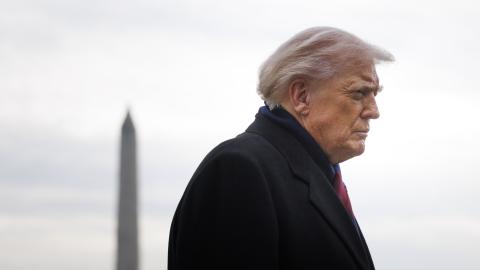The Federal Communications Commission recently sought public comment on how to implement the Telephone Consumer Protection Act (TCPA), signed into law by President George H.W. Bush in 1991.
For a federal agency to seek public comment on the implementation of a rule is routine. For a federal agency to seek comment on the implementation of a law enacted 27 years ago is untimely. For a federal agency to seek comment on the implementation of a law after a stinging rebuke from the D.C. Circuit Court of Appeals in March, 2018, is simply embarrassing.
Welcome to world of TCPA, where after 27 years of attempting to write lawful rules, the FCC has yet to succeed.
It is not for want of trying. The statute itself is lengthy and involves terms that have fallen out of usage, such as “automated telephone dialing system.” Few Americans now use this term. Those who do are likely unaware that TCPA regulates the system’s use. The TCPA also regulates the use of “telephone fax machines.” Unlike 1991, today few Americans use fax machines. One might conclude that the FCC might be excused for getting the TCPA regulations of automated telephone dialing systems and telephone fax machines wrong.
The D.C. Circuit Court had a different conclusion, albeit only after 18 months, an unusually long time for an otherwise expeditious court. In 2015 the FCC issued a declaratory ruling that TCPA applied to devices that did not exist in 1991 and were at practically all Americans’ finger tips—smart phones. The FCC turned a statute that applied to little and likely should have been rewritten by Congress into a statute that applied to commonly-used devices. Most Americans were suddenly potentially liable for violating TCPA by using their smartphones. Then-commissioner Ajit Pai, now chairman, dissented.
The Commission tried to tell the court that it had no authority to review the Commission’s definition of an automated telephone dialing system. That was an ill-advised position. The court concluded not only that it had authority to review the Commission’s definition, but that a definition that included smartphones was “eye-popping,” before overturning the definition. “Eye-popping” appears to be a technical legal term used by judges who are irritated by a party.
It would have been a bad day for the Commission if that was all the court had to say. But there was more.
Practically every American is at times offended by unsolicited calls. The TCPA was intended to stop such calls, but the intentions were stated in the technological language of 1991. It appears that the FCC’s 2015 declaratory ruling was an effort to expand the meaning of archaic terms to include new technologies, non-existent at the time the law was enacted. The intention of the Commission was no doubt to benefit consumers, but the means selected by the Commission—sweeping in technologies that were not included in the statute—were harmful. Good ends cannot justify bad means.
The FCC lost the TCPA court battle in March. It is time for the Commission to admit that the statutory language limits what the Commission can do. It should craft narrow rules based on the statutory language rather than try yet again to write rules outside the law. The FCC does not need to have a court strike down its “eye-popping” rules.
This result would place the issue of unwanted calls squarely where it belongs: Congress. Special interests will ask the FCC to write aggressive rules because Congress won’t pass a new law to protect American consumers from unsolicited calls. But the FCC does not have the power to rewrite archaic laws or to invent new ones. That is the sole responsibility of Congress.
American consumers want relief from unwanted calls, and Congress should address those concerns with a simple law with simple, timeless words that will not be overturned by courts. That is a tall order for Congress, but having the FCC go outside of its statutory authority is an even taller order.

















